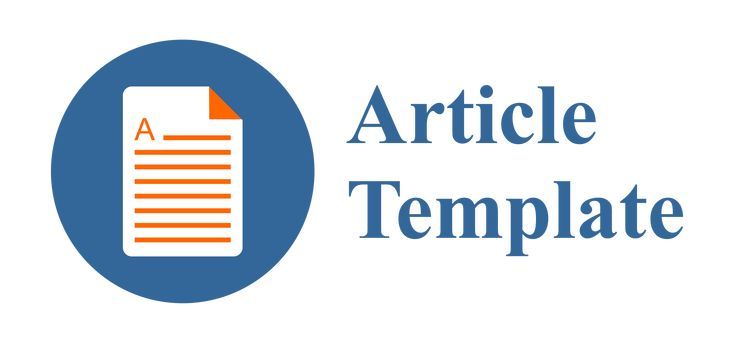Pengenalan Sayur dan Buah untuk Anak Autis berbasis Multimedia Augmented Reality
DOI:
https://doi.org/10.29408/edumatic.v7i2.23219Keywords:
autism, children, augmented reality, fruits, vegetablesAbstract
Autism is a neurobiological developmental disorder that affects the social, communication, and interaction abilities of children. Difficulty accepting and interacting with healthy foods, such as vegetables and fruits, is a common challenge for children with autism. To address this challenge, researchers propose the use of augmented reality (AR) technology as an interactive and enjoyable method to introduce vegetables and fruits to children with autism. This study aims to investigate the effectiveness of using AR in increasing the interest and acceptance of vegetables and fruits in children with autism by suggesting the use of augmented reality technology and applying the Picture Exchange Communication System (PECS) technique. The PECS method is a communication training technique that uses pictures or symbols to assist children with autism in communication. This application is designed using the Unified Modelling Language (UML) tools. Testing of this application is conducted through alpha and beta testing. The results of alpha testing using black box testing conclude that the application runs smoothly without any functionality issues. The results of beta testing, with an average of 82.50%, suggest that the use of the PECS method and AR technology can enhance communication skills and motivation in introducing vegetables and fruits and can help children with autism follow a gluten-free casein-free (GFCF) diet to reduce the symptoms experienced by children with autism.
References
Almatsier, S. (2009). Prinsip dasar ilmu gizi. Jakarta: Gramedia Pustaka Utama.
Almurashi, H., Bouaziz, R., Alharthi, W., Al-Sarem, M., Hadwan, M., & Kammoun, S. (2022). Augmented Reality, Serious Games and Picture Exchange Communication System for People with ASD: Systematic Literature Review and Future Directions. Sensors, 22(3), 1–47. https://doi.org/10.3390/s22031250
Andriyani, A., Buliali, J. L., & Pramudya, Y. (2022). Development of Augmented Reality Media Based On Cybernetic Learning Theory to Stimulate Spatial Abilities. Journal of ICSAR, 6(2), 151–157. http://dx.doi.org/10.17977/um005v6i22022p151
Bahroni, I., & Zakaria, A. (2020). Rancang Bangun Pembelajaran Doa Sehari-hari untuk Anak Kebutuhan Khusus Berbasis Augmented Reality. Journal of Innovation Information Technology and Application (JINITA), 2(01), 19–27. https://doi.org/10.35970/jinita.v2i01.152
Center for Desease Control and Prevention. (2022). Data & Statistics on Autism Spectrum Disorder. https://www.cdc.gov/ncbddd/autism/data.html
Hutabri, E., & Putri, A. D. (2019). Perancangan Media Pembelajaran Interaktif Berbasis Android Pada Mata Pelajaran Ilmu Pengetahuan Sosial Untuk Anak Sekolah Dasar. Jurnal Sustainable: Jurnal Hasil Penelitian Dan Industri Terapan, 8(2), 57–64. https://doi.org/10.31629/sustainable.v8i2.1575
Imawati, Y., & Chamidah, A. N. (2018). Efektivitas media berbasis augmented reality terhadap kemampuan anak tunarungu mengenal kebudayaan Yogyakarta. JPK (Jurnal Pendidikan Khusus), 14(1), 26–34. https://doi.org/10.21831/jpk.v14i1.25164
Irfansyah, J., & Anifah, L. (2022). Media Pembelajaran Pengenalan Hewan untuk Siswa Sekolah Dasar Menggunakan Augmented Reality Berbasis Android. Journal of Engineering, Technology, and Applied Science, 4(2), 86–96. https://doi.org/10.36079/lamintang.jetas-0402.384
Julianingsih, D., & Asrul Huda. (2022). Rancang Bangun Media Pembelajaran Komunikasi Anak Autis Berbasis Augmented Reality. Jurnal Pendidikan Tambusai, 6(8.5.2017), 1192–1201.
Kessick, R. (2009). Autism & Diet: What You Need to Know (1st ed.). Jessica Kingsley Pub.
Kurniawan, I., & Taryadi. (2017). Pembelajaran Anak Autis Dengan Metode Picture Exchange Communication System ( PECS ) Berbasis Multimedia Augmented Reality. Seminar Nasional Informatika Medis(SNIMed), 29–34.
Lord, C., Brugha, T. S., Charman, T., Cusack, J., Dumas, G., Frazier, T., Jones, E. J. H., Jones, R. M., Pickles, A., State, M. W., Taylor, J. L., & Veenstra-VanderWeele, J. (2020). Autism spectrum disorder. Nature Reviews. Disease Primers, 6(1), 5. https://doi.org/10.1038/s41572-019-0138-4
Mandar Jadhav, M. D., & Mary Ann Schaepper, M.D., M.Ed, D. (2021). What Is Autism Spectrum Disorder? American Psychiatric Association. https://www.psychiatry.org/patients-families/autism/what-is-autism-spectrum-disorder
Mashab, N. I. A., & Tajudin, N. R. (2010). Pengetahuan Gizi Ibu dan Pola Makan Anak Autis. Makara Journal of Health Research, 13(2), 88–90. https://doi.org/10.7454/msk.v13i2.373
Menéndez, E., & Lopez De Luise, M. D. (2015). Augmented reality as visual communication for people with ASD. ICSIT 2018 - 9th International Conference on Society and Information Technologies, Proceedings, 16(1), 28–32.
Nini, K., & Maramba, A. N. N. (2022). Meningkatkan Kemampuan Anak Autisme Dalam Bidang Bantu Diri Mandi Dengan Metode Pecs Di Wisma Rasida 15a. Jurnal Pelayanan Pastoral, 3(1), 63-70. https://doi.org/10.53544/jpp.v3i1.290
Rukiyah, A. Y., Sari, D. Y., & Humaeroh, D. (2021). Jurnal Ilmiah Kesehatan. Jurnal Ilmiah Kesehatan, 1(2), 15–20.
Sasmito, G. W. (2017). Penerapan metode Waterfall pada desain sistem informasi geografis industri kabupaten Tegal. Jurnal Informatika: Jurnal Pengembangan IT, 2(1), 6–12. https://doi.org/10.30591/jpit.v2i1.435
Septem Riza, L., Gafar Abdullah, A., & Rifqi Mubaroq, S. (2020). Multiplatform Application Technology – Based Heutagogy on Learning Batik: A Curriculum Development Framework. Indonesian Journal of Science & Technology, 5(1), 45–61. https://doi.org/10.17509/ijost.v5i1/18754
Widiaty, I., Riza, L. S., Abdullah, A. G., & Mubaroq, S. R. (2020). Multiplatform application technology–based heutagogy on learning batik: A curriculum development framework. Indonesian Journal of Science and Technology, 5(1), 45-61. https://doi.org/10.17509/ijost.v5i1.18754
World Health Organization (WHO). (2023). Autism. https://www.who.int/news-room/fact-sheets/detail/autism-spectrum-disorders
Downloads
Published
How to Cite
Issue
Section
License
All articles in this journal are the sole responsibility of the authors. Edumatic: Jurnal Pendidikan Informatika can be accessed free of charge, in accordance with the Creative Commons license used.

This work is licensed under a Lisensi a Creative Commons Attribution-ShareAlike 4.0 International License.




